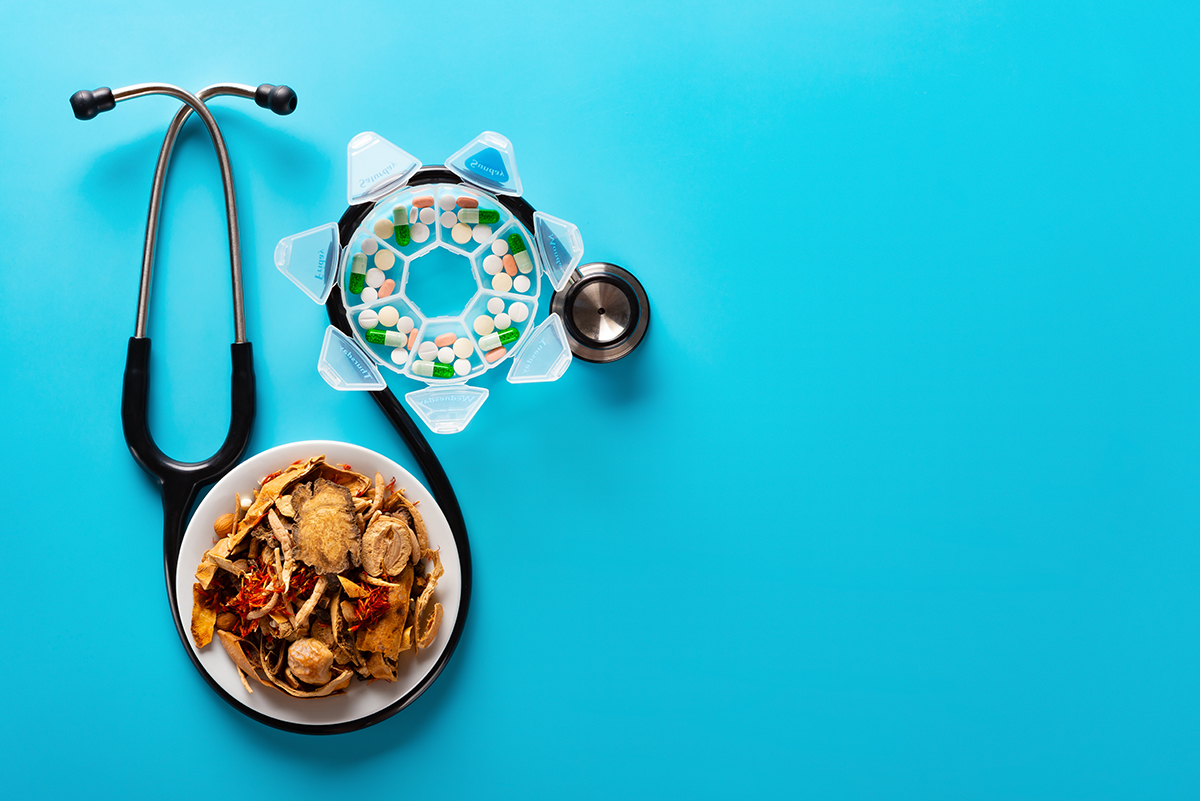Cancer Treatment - How Traditional Chinese Medicine Complements Western Medicine
Dr. So Tsz Him,
Honorary Clinical Assistant Professor, Department of Clinical Oncology, The University of Hong Kong
Registered Chinese Medicine Practitioner
Member of the Education Group, Hong Kong Anti-Cancer Society
Host: Ms Wong Wing Chen Janet
Information Compilation : Ms. Vivien Kam, Ms. Bernadette Cook
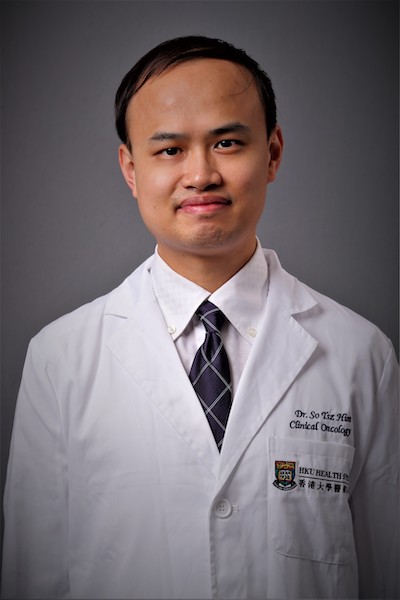
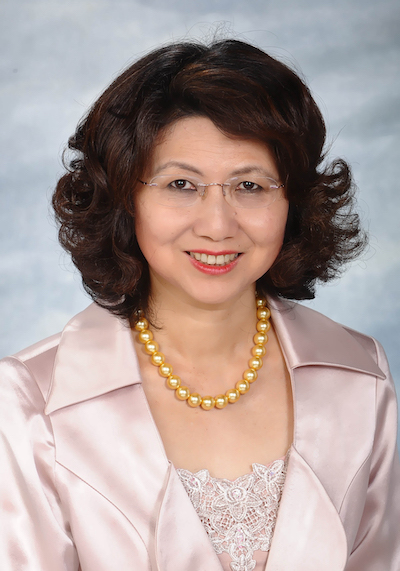
Introduction: In Hong Kong, most cancer patients are mainly treated with Western medicine, with Traditional Chinese Medicine as a complement. In this interview, Dr. So Tsz Him (as an oncologist and a registered Chinese medicine practitioner) talks about how Traditional Chinese Medicine can complement Western medicine treatment.
Part One - How Western Medicine and Traditional Chinese Medicine View the Causes of Cancer
Part Two - Cancer Treatment Methods: Western Medicine vs Traditional Chinese Medicine
Part Three - Are there any conflicts between Western Medicine Treatment and Traditional Chinese Medicine Treatment?
Part Four - How Traditional Chinese Medicine Complements Western Medicine Treatment
Part Five - Things to Note When Receiving Both Western Medicine and Traditional Chinese Medicine Treatment
Part One - How Western Medicine and Traditional Chinese Medicine View the Causes of Cancer
Wong: Hong Kong is a Chinese society, and very often when patients are diagnosed with cancer, they wish to see a Chinese medicine practitioner while receiving Western medicine treatment. Today, I have invited Dr. So Tsz Him to discuss with us how Traditional Chinese Medicine can complement Western medicine treatment.
Dr. So, thank you for accepting my interview.
So: You're welcome.
Wong: Perhaps we can start from the basics, that is, how do Western medicine and Traditional Chinese Medicine view the causes of cancer on a macro level?
So:
Western Medicine Perspective
Western medicine views cancer mainly from a genetic perspective - that is, a person's cells should be normal, but if the genes are defective due to congenital defects, or are damaged by different factors later in life (such as smoking, radiation), the structure of the cells will be destroyed. If the cells do not have the ability to self-repair, then they will grow uncontrollably and gradually form cancer.
Traditional Chinese Medicine Perspective
The view of Traditional Chinese Medicine is slightly different from that of Western medicine.
Traditional Chinese Medicine tends to view the human body from a holistic perspective.
Traditional Chinese Medicine believes that if a person's body accumulates some bad things, the more they accumulate, the more they will gradually form cancer. So what are these bad things? They are usually referred to as "Qi stagnation", "Phlegm dampness" and "Heat toxin"(氣滯、痰濕和熱毒 ).
Traditional Chinese medicine believes that a person should have "vital energy" (similar to what Western medicine calls immunity), which can maintain a person's health. But as the vital energy fades, people become weaker and weaker, unable to suppress the growth of bad things, or to expel them, and cancer gradually appears.
So traditional Chinese medicine thinks that most people get cancer in middle and old age, because as they age, their vital energy becomes weaker and the bad things accumulate more and more.
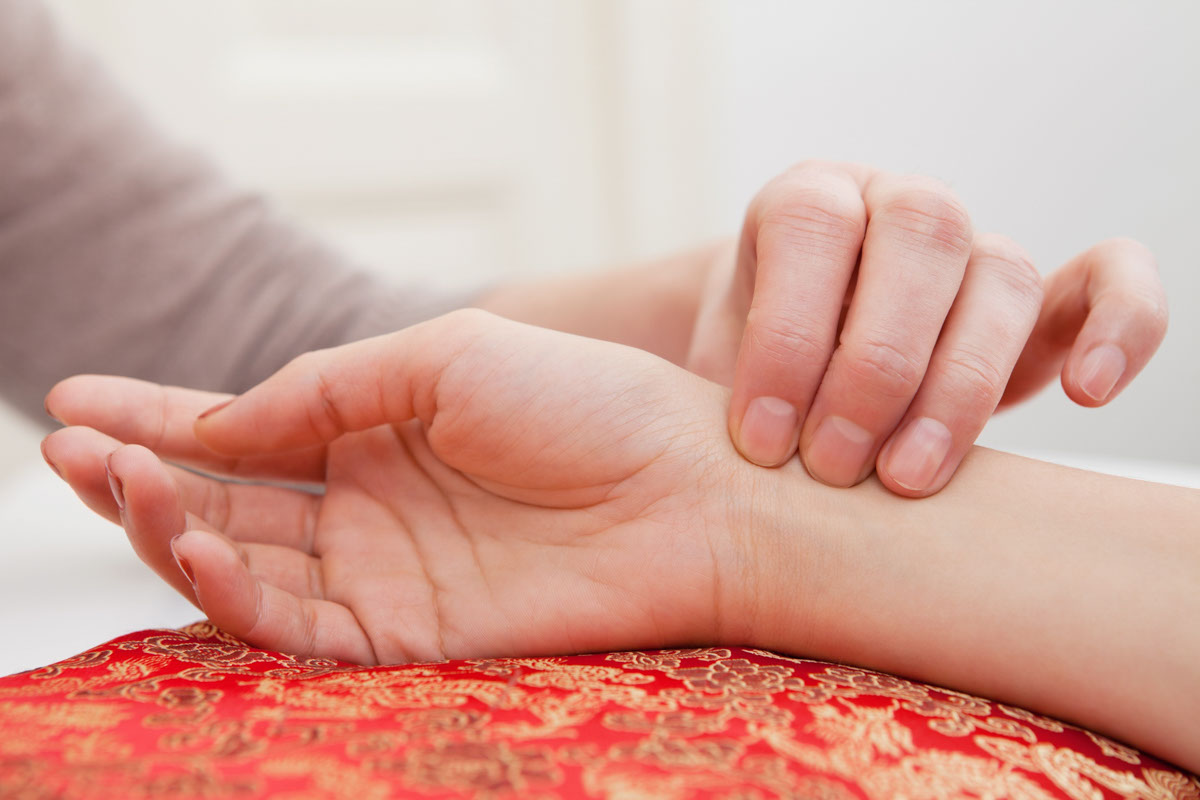
Part two - Cancer treatment methods: Western medicine vs Traditional Chinese medicine
Wong: I see. Let's talk about the different methods of treating cancer in Western and traditional Chinese medicine.
First, what is the perspective of Western medicine?
Western medicine treatment
So: When a doctor considers a treatment plan for a patient with cancer, the most important factor is the stage of the tumor. If the cancer is in its early stages and has not spread, surgery is often the first choice (such as lung cancer, breast cancer, etc.), with the aim of achieving a cure.
But in some cases, patients may need to undergo chemotherapy to shrink the tumor before surgery. This is common in breast cancer.
In the treatment of rectal cancer, radiotherapy can be used to shrink the tumor before surgery.
However, some early-stage cancers do not require surgery - for example, nasopharyngeal cancer, where the first choice of treatment is radiotherapy; or lymphoma, where often chemotherapy combined with radiotherapy can cure the patient, and the patient does not need to undergo surgery.
Some patients, because of their old age, physical weakness, or other health problems (such as heart problems, or having had a stroke, etc.), may not be suitable for surgery even if they have early-stage cancer, because they may not be able to withstand the risks of surgery (such as anesthesia, etc.); or they may not be able to recover smoothly after surgery. In these cases, radiotherapy is a good choice, such as for early-stage lung cancer.
However, overall, if the cancer is in its early stages, surgical removal is still the mainstream.
As for cancers that have spread, most will be treated with medication.
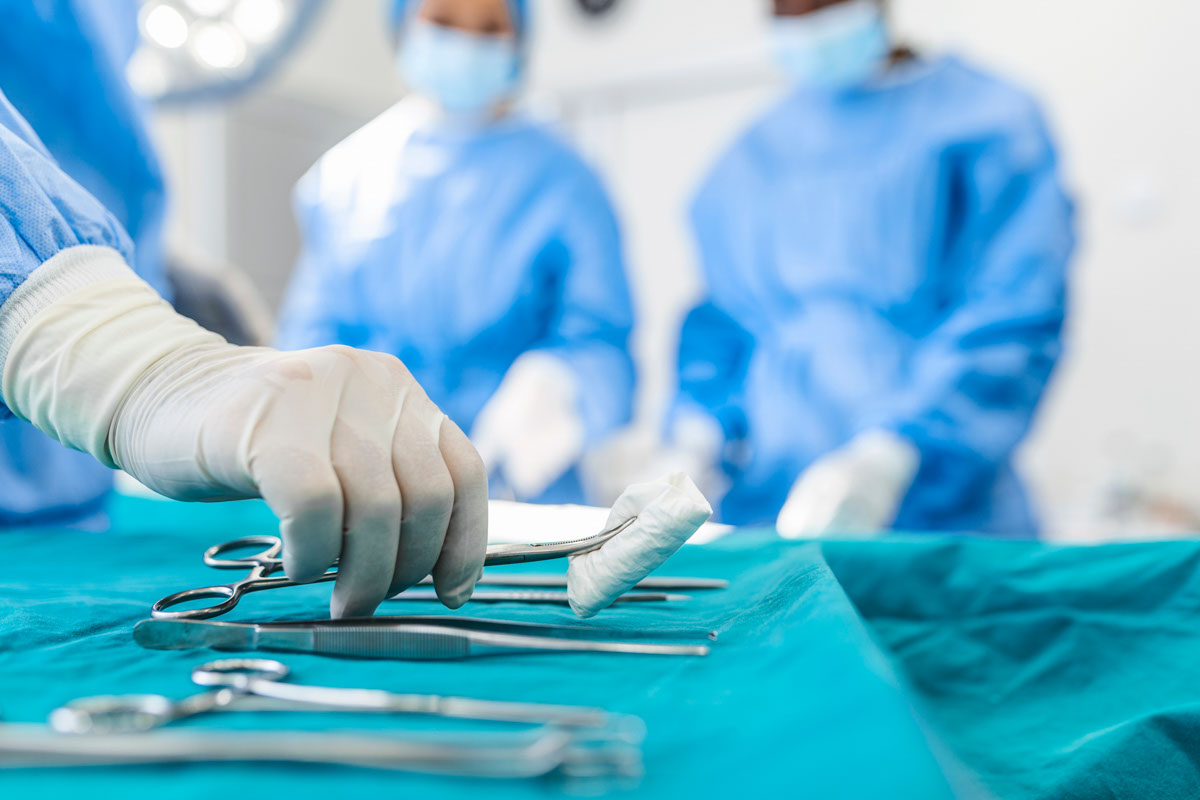
Traditional Chinese medicine treatment
Wong: What about from the perspective of traditional Chinese medicine? Traditional Chinese medicine does not have surgical treatment, is that a regret or a constraint?
So: From the perspective of traditional Chinese medicine, if a patient can have surgery to remove a tumor, they also accept surgery.
Allow me to talk a little bit about history here: in fact, by the time of the Song Dynasty, China's surgical technology was leading the world.
Even in the Qing Dynasty, traditional Chinese medicine still discussed surgical operations. There was a national textbook called " Golden Mirror of Medicine"(<醫宗金鑑> ). At that time, Western medicine had not yet been introduced to China, but there was already a "surgery" chapter in the book, which recorded the use of a knife to cut some ulcers or some skin tumors, showing that even traditional Chinese medicine had surgical treatment. However, most of the operations recorded in the past were to remove tumors visible to the naked eye on the skin surface. There were no microscopes, antibiotics, and sterile operations at that time, so there must have been many complications, so development of surgery declined. Traditional Chinese medicine treatment mainly relies on internal medicine treatment (that is, drug treatment), supplemented by methods such as acupuncture to treat diseases.
Later, as Western medicine became more and more advanced, the traditional surgery of Chinese medicine declined entirely.
Wong: Traditional Chinese medicine mainly uses drugs to treat cancer, what are the details?
So: Traditional Chinese medicine mainly relies on drugs to treat cancer, and is assisted by other methods, such as using acupuncture to stop vomiting and pain; using Qigong and Tai Chi to improve qi and blood; and also paying attention to lifestyle adjustment and diet therapy.
The principle of traditional Chinese medicine in treating cancer is "supporting the healthy qi" (扶正)and "eliminating the pathogenic factors"(袪邪) ).
Now in Hong Kong, traditional Chinese medicine treatment of cancer is mainly focused on "supporting the healthy qi", because the vast majority of patients treat cancer mainly with Western medicine.
However, at the same time, many patients will seek traditional Chinese medicine for adjuvant treatment, especially hoping to alleviate the side effects of Western medicine treatment - such as thrombocytopenia caused by chemotherapy (Chinese medicine can be used to improve blood and qi), and dry mouth and oral ulcers caused by radiotherapy (Chinese medicine can be used to clear heat and detoxify).
On the other hand, traditional Chinese medicine can also use Chinese medicine to enhance the patient's positive energy (in Western medical terms, it is to enhance immunity) to help the body fight against cancer.
Wong: This is "supporting the healthy qi", so how about "eliminating the pathogenic factors"?
So: In terms of "eliminating the pathogenic factors", Chinese medicine also has its way, that is, attacking the cancer tumor itself, such as clearing heat and detoxifying, resolving phlegm and dispersing knots, and removing stasis(清熱解毒、化痰散結、去瘀等 ). These Chinese medicines are generally more potent.
However, patients are still mainly relying on Western medicine for the treatment (or attack) of cancer. Except for special circumstances (for example, the patient is too old to accept Western medicine treatment), few patients are purely treated with traditional Chinese medicine for cancer.
Wong: Can we say that the main focus of traditional Chinese medicine is "strengthening the foundation and nourishing the origin"(固本培元), which is to strengthen the patient's body to fight this battle? And the use of drugs to "attack cancer cells" is secondary?
So: Yes, now cancer patients who see traditional Chinese medicine mainly hope to strengthen the foundation and nourish the origin, to cope with Western medicine's surgical treatment, or to alleviate the side effects of chemotherapy and radiotherapy.
In terms of traditional Chinese medicine, many patients of this type have a situation of imbalance of blood, qi, yin and yang, so most of the medicinal materials used are some tonic Chinese medicines, such as qi-tonifying, yin-nourishing, yang-strengthening, blood-tonifying, etc(例如補氣、養陰、壯陽、補血等。 ). The treatment will be adjusted according to the unique situation of the patient's body.
However, having said that, there are also some traditional Chinese medicines that are believed to be able to directly kill cancer cells, which is what we generally call anti-cancer Chinese medicine. But it is undeniable that the anti-cancer effect of Chinese medicine is not as "targeted" as Western medicine, such as targeted drugs in Western medicine. If it is used on suitable patients, the effect is often very significant. This is the strength of modern Western medicine treatment, also known as precision medicine.
Because the targeting of Chinese medicine is not as precise as Western medicine, so many times when using anti-cancer Chinese medicine, several kinds are used at the same time.
In general, holistic treatment is the strength of traditional Chinese medicine.
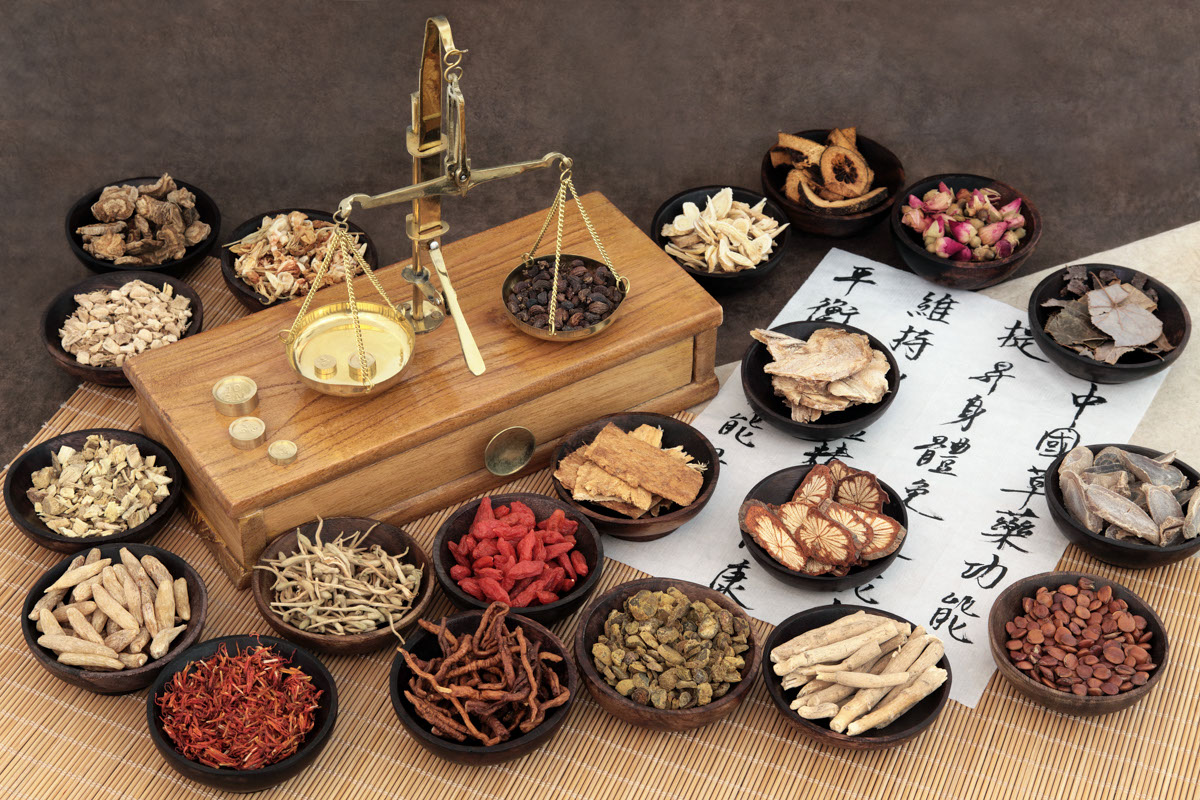
Part Three - Conflicts between Western Medicine Treatment and Traditional Chinese Medicine Treatment
Wong: The main methods of Western medicine treatment for cancer are:
- Local:
- Surgical treatment
- Radiation therapy
- Systemic:
- Chemotherapy
- Targeted therapy
- Hormone therapy
- Immunotherapy
From the perspective of traditional Chinese medicine, is there a similar concept?
So: Traditional Chinese medicine does not have surgical treatment, but traditional Chinese medicine also advocates that if the patient's tumour can be surgically removed, it is very worthwhile.
Traditional Chinese medicine does not have the concept of radiation therapy.
The main treatment for tumors in traditional Chinese medicine is through drugs. The concept is somewhat similar to Western medicine's chemotherapy and immunotherapy. Chemotherapy attacks cancer cells - "fighting evil"; while immunotherapy awakens the immune system to fight cancer - "supporting the positive".
On the other hand, traditional Chinese medicine can provide many good auxiliary treatments: for example, acupuncture can be used to relieve pain, stop vomiting, or relieve tension. In addition, diet therapy and abstinence, qigong or tai chi, emotional and lifestyle adjustments all have a positive impact on patients.
Wong: From the perspective of Chinese medicine, is there any opposition to any Western medical treatment for cancer? For example, I have heard of Chinese medicine practitioners telling patients that although Western medicine recommends surgery, surgery is too domineering and should not be performed, and that "breaking the qi"( 破氣 ) will occur after surgery, so it should be treated entirely with Chinese medicine.
Or telling patients not to undergo chemotherapy because it will "damage the entire physique ”(打散個人)?
Surgical treatment
So: From the perspective of Chinese medicine, patients are not opposed to surgery or chemotherapy - unless, as mentioned above, the patient is already very old or extremely weak and cannot bear the risk of surgery.
As for the so-called "breaking of qi" after surgery, it means that surgery will cause certain trauma to the body. But in fact, before the surgeon performs the surgery, he will definitely evaluate the patient's physique and the complexity of the surgery in detail before deciding whether to perform the surgery; and if so, what method to use; and how to rehabilitate after the surgery.
Admittedly, after surgery, patients will face some problems, such as difficulty in urination, lack of energy, pain, wound healing, etc., but they can always be resolved. It's better to accept the surgery quickly, and then recuperate and recover, even if it means paying some price first, the patient will feel that they can "earn it back" later.
In summary, surgery is a complex subject and should not be decided or denied with a simple statement.
More importantly: if a tumor that could have been removed by surgery is allowed to get out of control due to delay, and the disease worsens and even becomes irreversible, how can it be worth it?
Other treatments (including radiotherapy, chemotherapy, targeted therapy, immunotherapy, and hormone therapy)
Wong: What about other Western medical treatments besides surgery?
So: The same principle applies to other treatments - that is, before doctors perform these treatments, they will definitely evaluate the patient's overall condition, and will not proceed blindly, ignoring the side effects of the treatment on the patient. The whole process is actually a cost-benefit and risk assessment.
There is a saying in traditional Chinese medicine: "Arsenic can also be a tonic, and ginseng can also be a poison."(砒霜也可以是補藥,人參也可以是毒藥 ) The key is whether the doctor has made an appropriate assessment. We can't say that we won't do it because we are just afraid of some treatment side effects. We need to know that many times the harm of "not treating" can be much greater than the "treatment side effects".
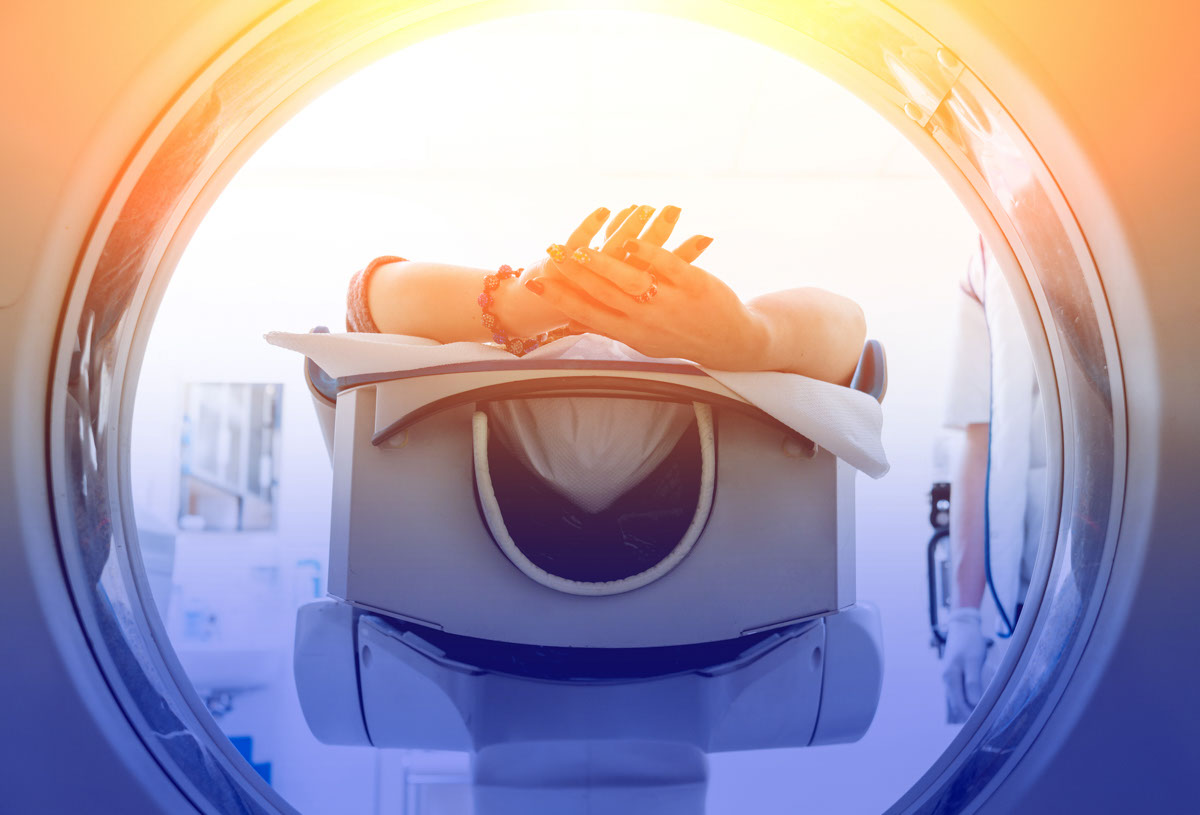
Part Four - How Traditional Chinese Medicine Can Complement Western Medicine Treatment
Wong: Now we understand that there is no conflict between Western medicine treatment and traditional Chinese medicine treatment, and traditional Chinese medicine treatment can even complement Western medicine treatment, playing a great role in assistance.
So now let's talk specifically about how traditional Chinese medicine can complement Western medicine treatment in different situations.
So: Okay.
Surgery
Wong: The first is surgery. For example, many patients feel extremely tired and "not enough energy"(唔夠氣) after surgery, so how can traditional Chinese medicine help?
So: Whether it is traditional Chinese medicine or Western medicine, they all attach great importance to postoperative care.
Traditional Chinese medicine can help patients after surgery in the following ways:
- Patients may feel uncomfortable in the intestines after surgery, with a feeling of "bloating"(脹氣). Research has shown that at this time, using acupuncture to stimulate Zusanli(足三里) and other intestinal and stomach-related acupoints can help "deflate"(排氣) and make patients feel more comfortable;
- In pain management, acupuncture can reduce the patient's use of morphine. Although it cannot completely replace Western medicine, it can help to some extent;
- After the patient is discharged from the hospital, due to the general anesthesia during the surgery, they may feel some discomfort in the lungs - such as feeling phlegm, shortness of breath, etc. These are considered "qi deficiency" (氣虛)from the perspective of traditional Chinese medicine. At this time, Chinese medicine can play a role, helping patients to "replenish qi"(補氣), alleviate, etc.;
- After surgery, patients may have muscle atrophy due to a period of lying in bed without enough exercise. At this time, acupuncture can also help patients strengthen muscles and recover as soon as possible; and
- After the surgery, the wound may not heal well. At this time, Chinese medicine can be used to benefit qi and nourish yin, and help healing.
Radiation Therapy
Wong: I have heard some traditional Chinese medicine practitioners say that radiotherapy will cause "heat and poison"(熱毒), so how can it be relieved from the perspective of traditional Chinese medicine?
So: Indeed, traditional Chinese medicine views radiotherapy as a kind of "heat toxin". For example, after radiotherapy, breast cancer patients' skin on the chest may turn red, dry or fall off; or for head and neck cancer, patients may have "damage" (ulceration) in the mouth after radiotherapy. At this time, traditional Chinese medicine will use the method of nourishing yin and clearing heat to relieve it.
For example, in the case of head and neck cancer, traditional Chinese medicine can give patients some Chinese medicine to increase saliva secretion, reduce ulceration and pain, and make swallowing easier.
In the case of lung cancer, many times patients will have pneumonia about four weeks after radiotherapy. Most patients will only have some coughing and no major problems, but a few patients may have severe conditions - such as severe coughing or even "asthma" symptoms, which can last for several weeks or even two months. Actually, this is not a real infection, but some inflammatory reactions. Western medicine can only help by giving patients some drugs (such as hormones), at this time can be supplemented with traditional Chinese medicine treatment.
From the perspective of traditional Chinese medicine, this is "fire and heat hurt the lungs", (火熱傷肺)can use drugs to clear heat and phlegm, relieve symptoms, reduce inflammation.
Overall, depending on the location and symptoms of cancer patients receiving chemotherapy, traditional Chinese medicine can use different methods to relieve.
Chemotherapy
Wong: Chemotherapy is something that everyone is very afraid of, because it brings a series of very hard side effects. What side effects can traditional Chinese medicine relieve?
So: Actually, "chemotherapy" includes many different drugs, and different drugs have different side effects.
However, there are some common side effects that can be relieved with Chinese medicine:
・Vomiting - Nowadays, Western medicine has done quite well in antiemetic, most patients will not really vomit, just have a "bloating" feeling, or poor appetite, can not eat. These symptoms have little way to relieve in Western medicine. From the perspective of traditional Chinese medicine, acupuncture can be used to improve the patient's condition by using points such as Zusanli, Sanyinjiao(足三里、三陰交)and other points related to the intestines and stomach. At the same time, the Chinese medicine practitioner can also give the patient some Chinese medicine (such as Shenqu, Ji Nei Jin, etc.) (神曲、雞內金等 )to improve the patient's appetite;
・Numbness in hands and feet - Many patients will have numbness in their hands and feet after chemotherapy - such as breast cancer patients and colon cancer patients, many times this situation will occur in the later stages of treatment. Severe cases can be painful for patients just by stepping on the ground, and there is not much that Western medicine can do about it. From a Chinese medicine perspective, if a patient has this phenomenon, acupuncture can be used to alleviate symptoms, especially if acupuncture is started as soon as symptoms appear, the effect can be better; and
・Side effects related to bone marrow suppression, such as low white blood cells, low platelets, anemia, susceptibility to infection, etc. - Some patients will use peanut husks, red dates and black chicken(花生衣、紅棗和烏雞 ) to make soup, all of which have some functions.
Overall, if Chinese medicine can alleviate some symptoms, so that doctors do not have to reluctantly reduce the dose of chemotherapy for patients / even delay / stop the course of treatment, it will bring great benefits to the overall treatment of patients.
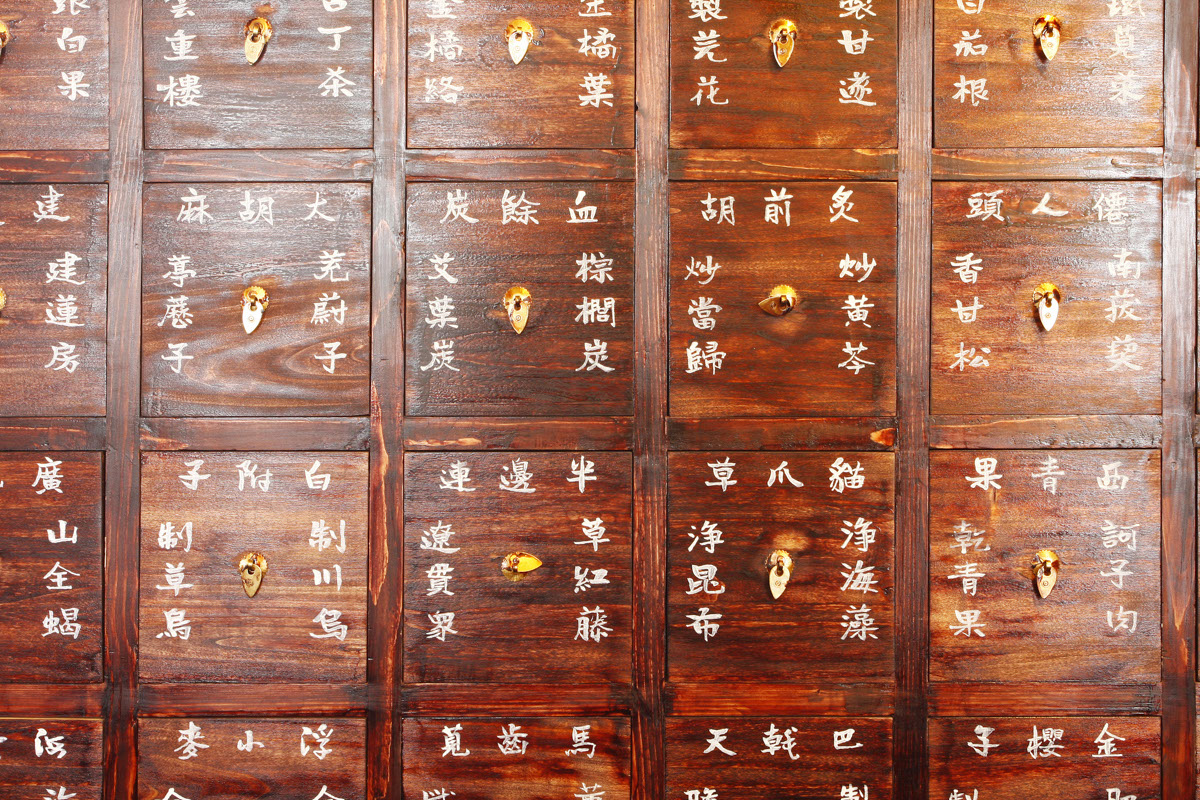
Targeted therapy
Wong: Targeted therapy is a newer treatment method. Some patients don't quite understand its mechanism, can you explain it to us? Can Chinese medicine also alleviate its side effects?
So: In fact, targeted therapy includes many different drug treatments, targeted therapy is just a general term.
Targeted therapy is mainly divided into two categories: oral and injection.
The principle is that in some cancers, scientists have found that there are some genes in the cells that drive cancer cells to divide very quickly (driver mutation), which leads to cancer. And targeted drugs can "turn off" these signals that promote cancer cell division (switched off), thereby controlling cancer.
Since these drugs only target specific gene mutations, the side effects are also less.
Wong: Since targeted therapy is so good, why not use it as a first-line treatment, but often wait until cancer cells spread to use it?
So: In fact, there are now some situations where targeted therapy is used as a first-line treatment.
For example, a type of lung cancer is caused by a gene mutation called EGFR, and targeted therapy is now used as a first-line treatment, because compared to chemotherapy, it is more effective in prolonging patient survival, and because it is oral, it is very convenient for patients, making the patient's quality of life better.
However, not all lung cancer patients can use targeted therapy, because it must be confirmed in the test that there is a gene "match". If all targeted drugs cannot be matched in the test, then there is no way. We use colloquial language to explain to patients - it is "can't catch its pain"(捉不到它的痛腳), only chemical treatment or immunotherapy can be used.
Wong: What you just mentioned is "oral" targeted therapy, so what is "injection" targeted therapy?
So: The majority of injection targeted therapies are similar to immunoglobulins (anti-body), such as when treating HER type II, it is often used in combination with chemotherapy and targeted therapy, with the aim of blocking signals or signal receptors, making cancer cells less active, or even dying.
Wong: What about side effects?
So: The side effects of targeted therapy are much lighter than chemotherapy, but they still exist.
Take EGFR as an example, targeted therapy has the following side effects:
- Facial and top of the head grow some acne-like sores;
- Oral ulcers;
- Diarrhea; and
- Palm and foot skin proliferation, etc.
Western medicine will ask patients to apply sunscreen to block ultraviolet light and reduce the impact of small sores on the face. If the situation is serious, the doctor may ask the patient to take some hormones, and there is no other way.
From the perspective of Chinese medicine, there are some methods to relieve the symptoms of patients:
- These small sores are similar to "wind-heat"(風熱) from the perspective of Chinese medicine, and can be relieved by using traditional Chinese medicine to treat wind-heat/acne (such as silver flower, forsythia)(銀花、翹);
- In terms of oral ulcers, some heat-clearing Chinese medicine or mouthwash can be used to relieve them; and
- In terms of diarrhea, Chinese medicine can also give some spleen-strengthening and diarrhea-stopping drugs.
From the above, we can see that in some aspects, Chinese medicine can indeed relieve the side effects of targeted therapy, which can make patients not reduce/stop the medicine and affect the entire treatment process.
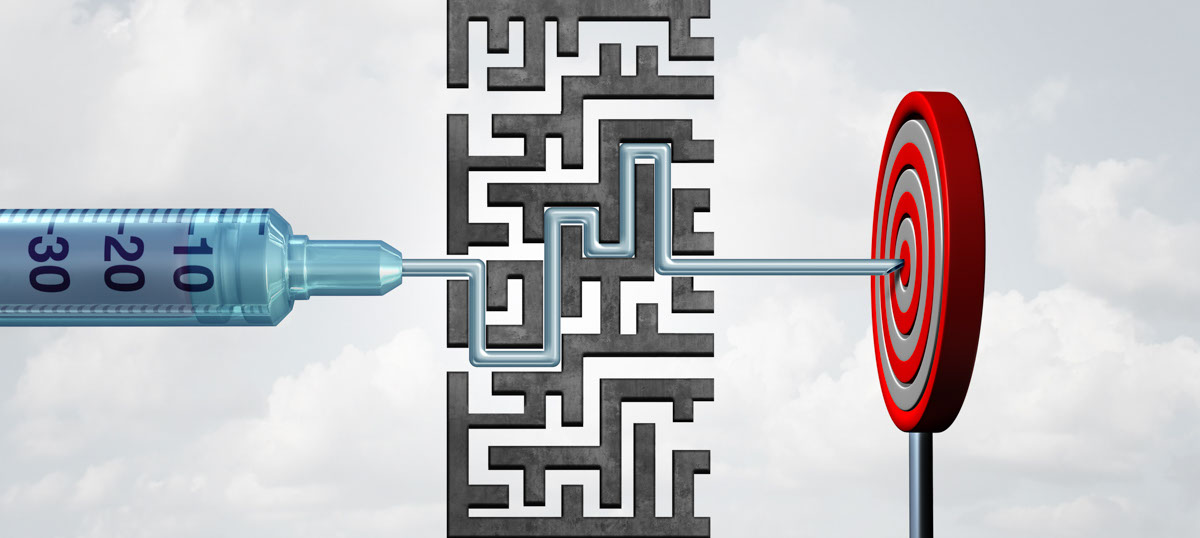
Hormone therapy
Wong: What about hormone therapy?
So: Hormone therapy is mainly used to treat two types of cancer - female breast cancer and male prostate cancer. In the treatment of breast cancer, it suppresses female estrogen; in the treatment of prostate cancer, it suppresses male hormones.
The side effects of breast cancer and prostate cancer are quite similar: hot flashes, night sweats, patients feel pain all over the body (especially common in breast cancer patients).
In terms of pain, many studies (including those conducted in the United States) have confirmed that acupuncture can help alleviate it.
Acupuncture can also help alleviate hot flashes to some extent.
From the perspective of traditional Chinese medicine, these phenomena occur because of "yin deficiency", so the treatment direction is to "nourish yin".
At the same time, a common side effect of hormone therapy is osteoporosis, so Chinese medicine starts from nourishing the kidneys and bones. Commonly used Chinese medicines include bone nourishing fungus, bone marrow treasure, Liuwei Dihuang pills, etc( 補骨芝、骨髓寶、六味地黃丸等).
Immunotherapy
Wong: What about immunotherapy?
So: The side effects of immunotherapy are relatively mild.
However, in the first few days after treatment, patients will feel very, very tired, as if they have a severe cold. From the perspective of traditional Chinese medicine, it is as if the patient has exhausted their "qi", so the treatment direction is mainly to "replenish qi".
At the same time, immunotherapy can also cause some skin conditions - some patients who have never had eczema, psoriasis and rubella will have these problems during immunotherapy. From the perspective of traditional Chinese medicine, these are "wind-heat", so they need to "expel wind". Commonly used Chinese medicines include Jingjie, Fangfeng, etc.(經介、防風等 ), which are all heat-clearing and itch-relieving drugs.

Part Five - Things to pay attention to when receiving Western and Chinese medical treatment at the same time
Wong: Are there any conflicts between Western and Chinese medical treatments, such as drug conflicts?
So: The so-called "conflict" is if the use of Western and Chinese medicine together will have a negative impact on the patient.
Many cancer patients have the following experience - that is, the doctor tells the patient not to take Chinese medicine indiscriminately during treatment, mainly because they are worried about unknown drug properties in Chinese medicine (such as hepatotoxicity), and they may also worry about unknown drug interactions between Chinese and Western medicine, which affect drug absorption, etc., that is, what we often say that Chinese and Western medicine "will clash".
In fact, some Chinese medicines do have hepatotoxicity(肝毒性), such as bone nourishing fungus, He Shou Wu, Huang Yaozi, etc(補骨芝、何首烏、黃藥子等 ). Therefore, patients cannot take them for a long time, can only take them for a short time, and need to regularly check liver function during the period of taking them to ensure that there are no problems. However, you don't need to worry too much, because as long as you can use/adjust it properly, there will be no problem.
Wong: Actually, does Western medicine also have toxicity?
Yes, Western medicine itself is toxic.
So if a patient needs to undergo Western medical treatment - such as chemotherapy and targeted therapy - then in the first two or three weeks of treatment, I suggest that the patient does not take Chinese medicine at the same time. It is best to wait until this period has passed and the patient's condition has stabilized before gradually introducing Chinese medicine, and the dose should not be too high at the beginning, it is better to increase it gradually.
Because if the patient starts taking Chinese medicine (which may involve more than a dozen kinds of medicinal materials) while undergoing chemotherapy and targeted therapy, and also takes some supplements, then when the liver is found to have problems, the doctor does not know what is causing it. Under these circumstances, the usual treatment is to stop the main Western medicine treatment, but such situation is really not ideal.
Wong: Can we now find information about the interference between Western medicine and Chinese medicine?
So: Although there is some now, the level is not very high from the perspective of evidence-based science, it is usually just some phenomena observed and recorded during clinical practice. We hope to have more data in the future.
But don't worry too much, as I just said, as long as there is appropriate monitoring, there is no problem with receiving both Chinese and Western medical treatment at the same time.
But remember to consult your own Western and Chinese doctors.
Wong: I am very grateful to you for sharing so much with us today.
So: You're welcome.
(December 2021)
